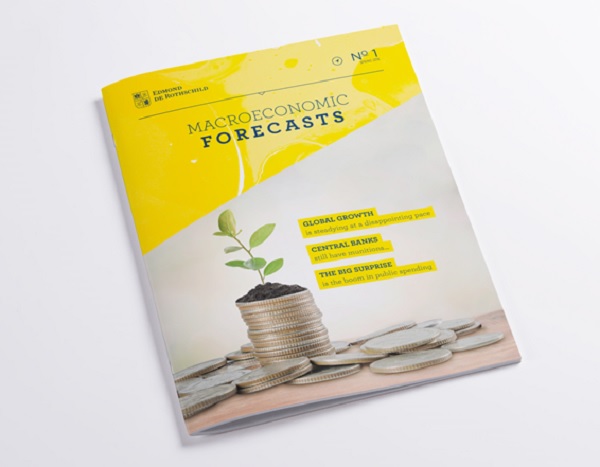
In the first edition of its new publication, “Macroeconomic Forecasts”, the Economic Research Department of the Edmond de Rothschild group expects global growth to steady at a disappointing pace; the deteriorating outlook is reflected in low interest rates.
Central banks still have ammunition left but the consequences of negative interest rates remain uncertain as the policy is unprecedented, noted Mathilde Lemoine, the Group Chief Economist. “As long as governments fail to implement economic policies designed to enhance productivity, central banks have no choice but to keep taking the process of financing growth with debt a step further," Lemoine observed in her introduction.
The Economic Research department of the Edmond de Rothschild group has unveiled Macroeconomic Forecasts, a publication intended for the Group’s clients that covers all the world's major economies and offers scenarios in a two-year horizon. Reflecting the Group’s ambition to produce independent, world-class economic research, it will appear semi-annually.
Macroeconomic Forecasts presents the research and forecasts of the Economic Research Department, headed since January this year by Mathilde Lemoine, the new Group Chief Economist. Ms Lemoine, who holds a PhD in Economics and specialises in international, monetary, employment and growth issues, joined the Edmond de Rothschild group to impart her sharp insights into macroeconomic developments and thus strengthen the Group’s “thought leadership” in market strategies in the current context of heavy volatility.
In the US, fixed-asset investment and foreign trade will continue to drag down overall GDP growth. However, this will be counterbalanced by the momentum of private consumption and increased public spending.
Japan in contrast will see persistent drag on expansion from weak personal expenditure, which will probably force the Bank of Japan to ease its monetary policy further.
The Euro Zone has finally put paid to its "Great Recession", thanks to public spending and an upturn in the real-estate market. These will remain the main growth drivers but the upturn in commodity prices and slightly slower momentum in job creation could weigh on consumer spending.
Switzerland is in a more comfortable position. GDP growth is set to gain pace, fuelled by strong private consumption. Deflation, though set to continue on into 2017, is not a source of concern since it does not stem from weak demand.
Emerging countries, finally, will go on being hurt by declining productivity and overcapacity but growth rates could start to pick up again by the end of 2016. In these regions, implementing structural reforms seems the prerequisite for getting their economies back on track.








